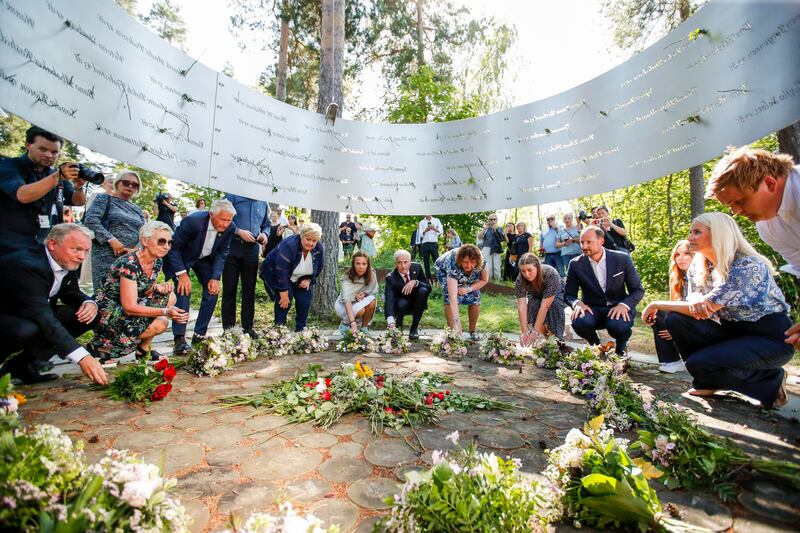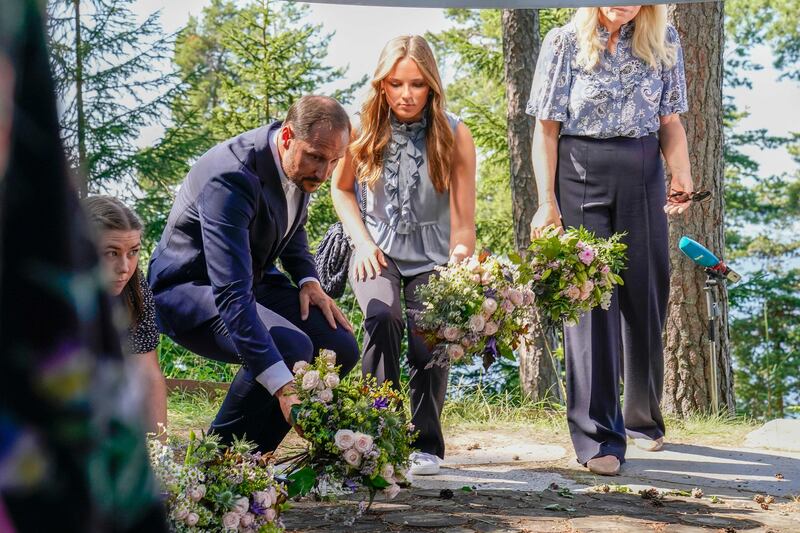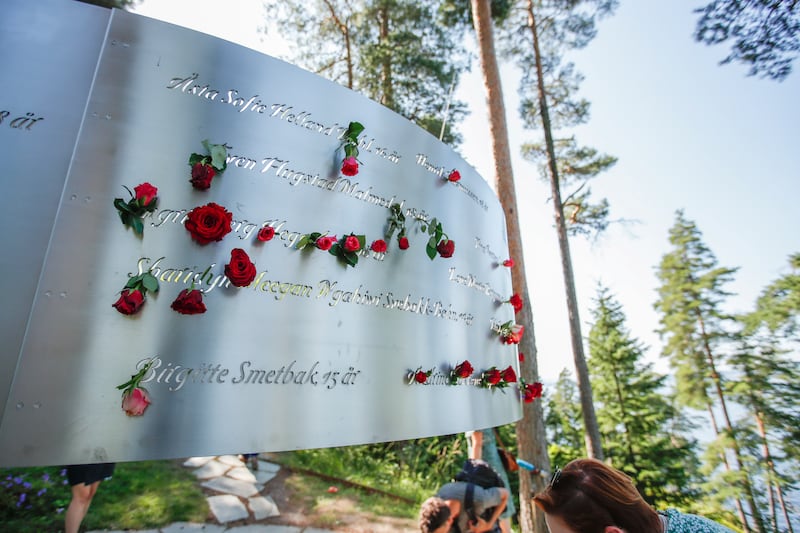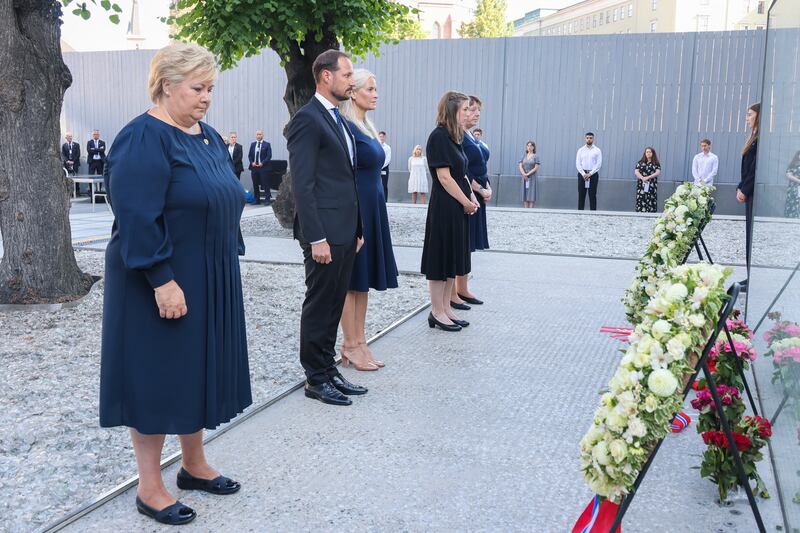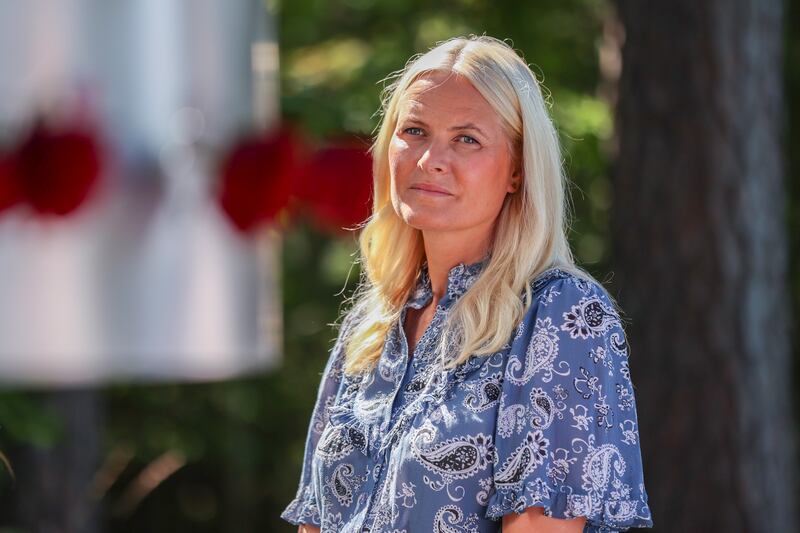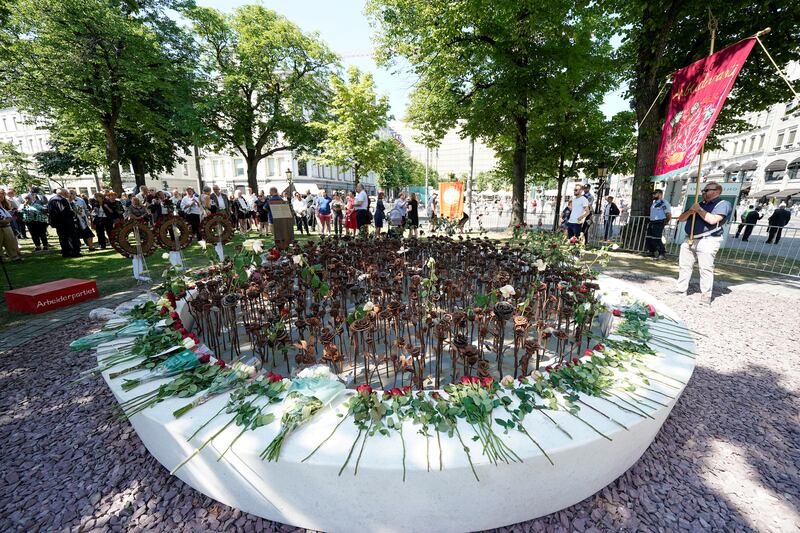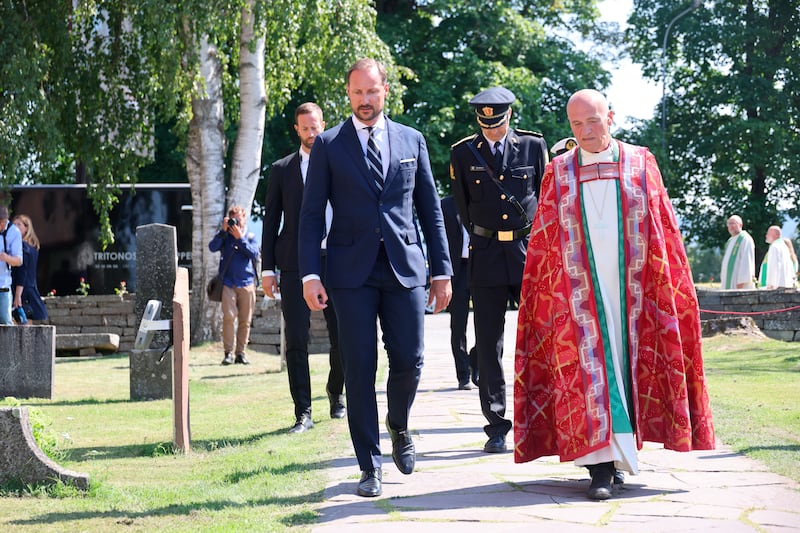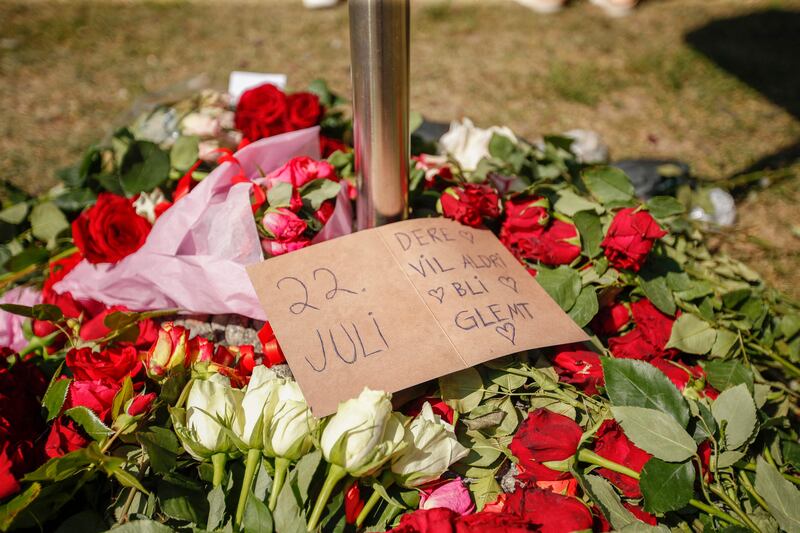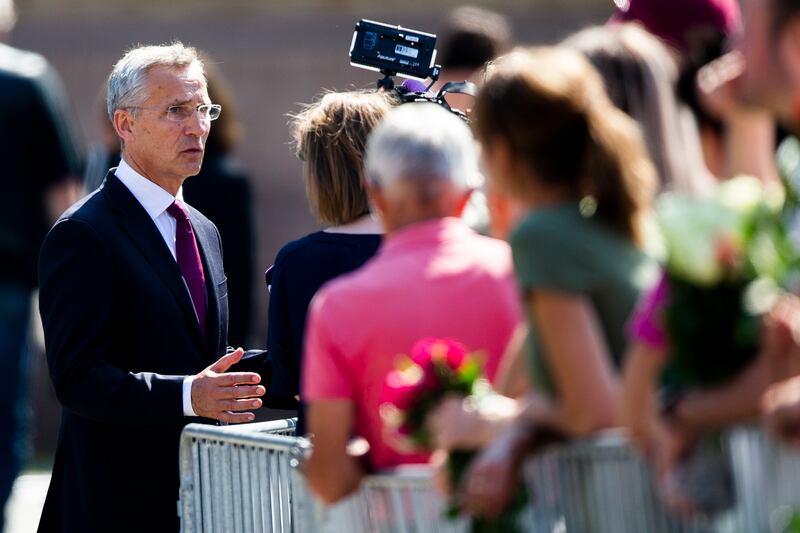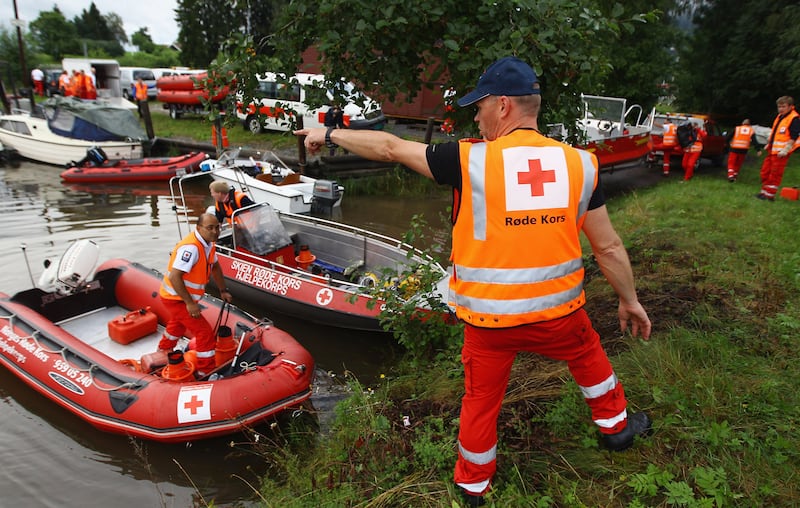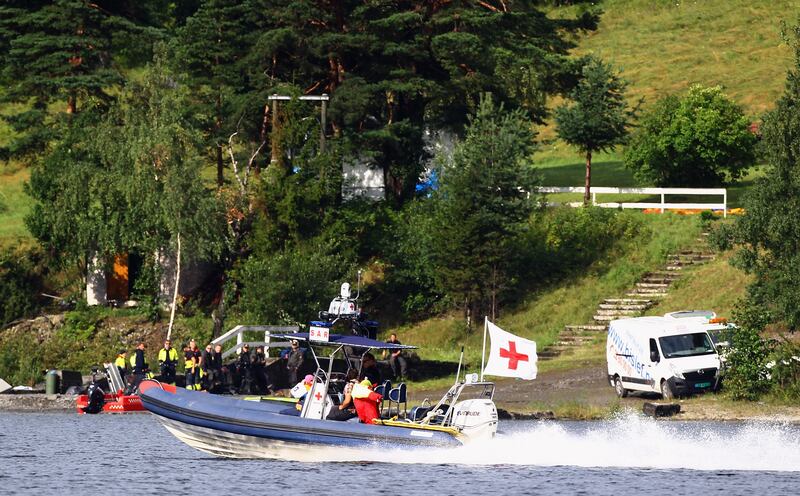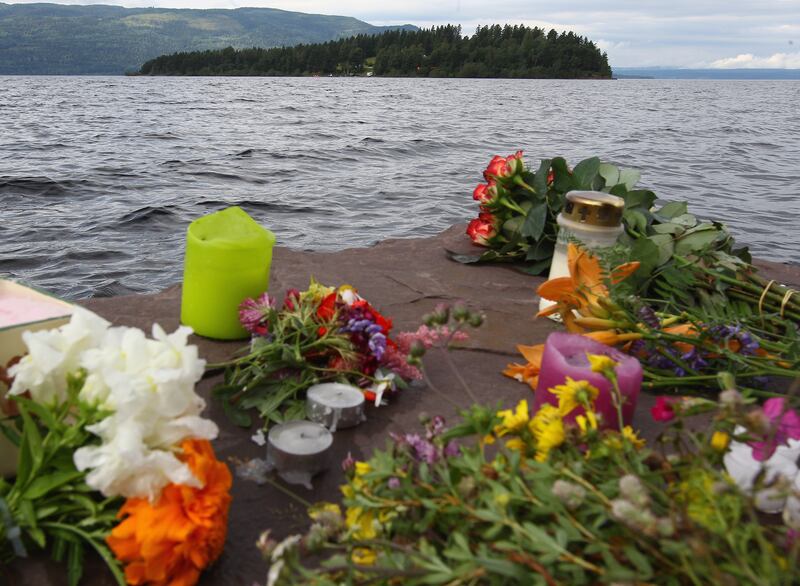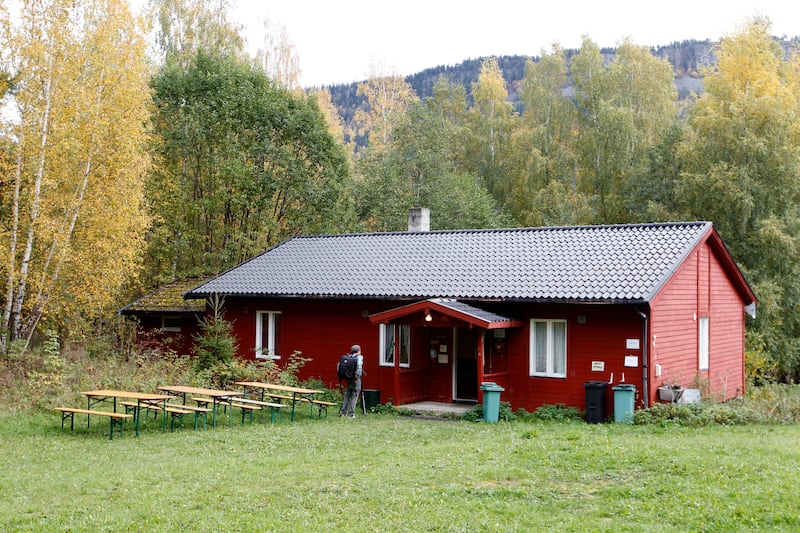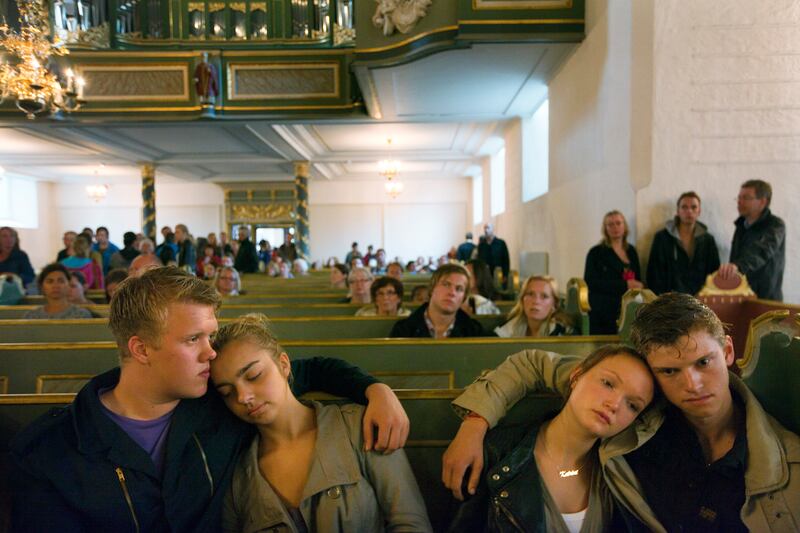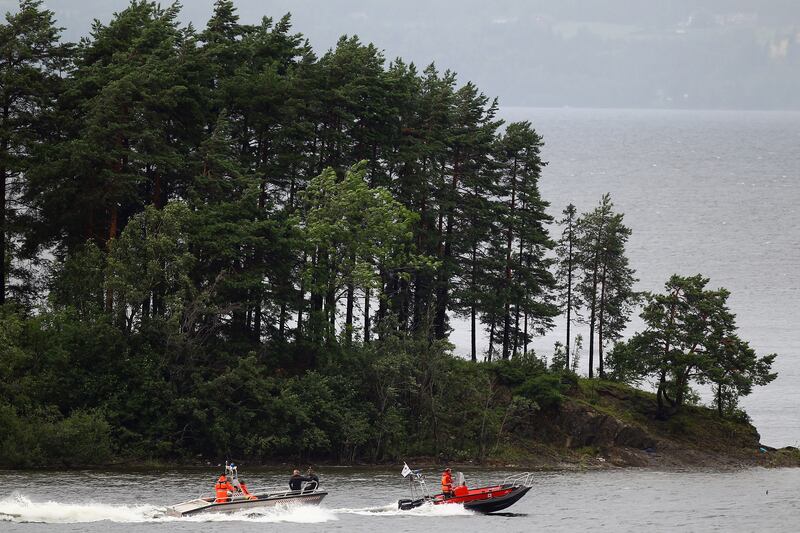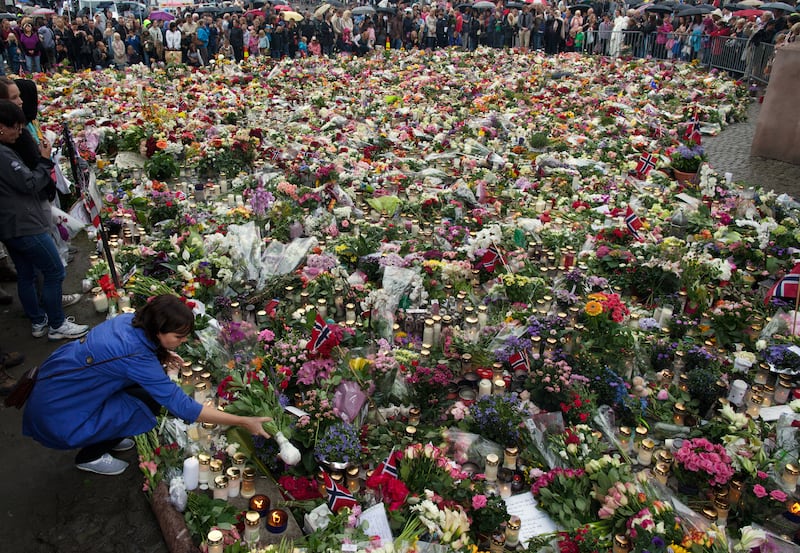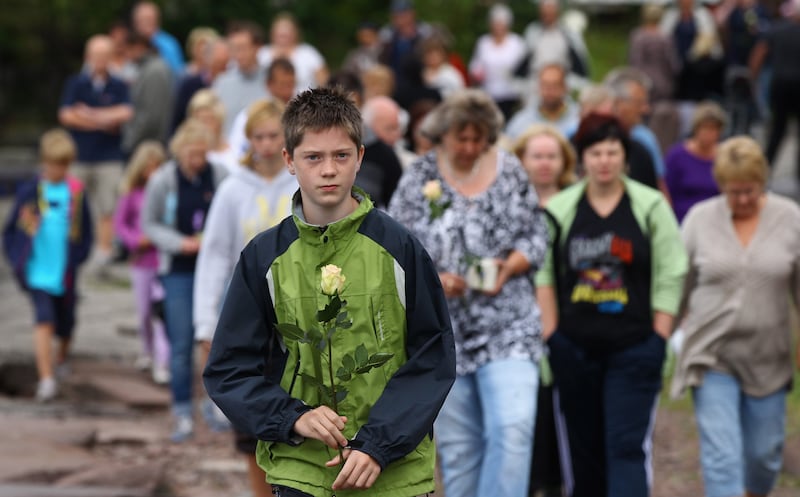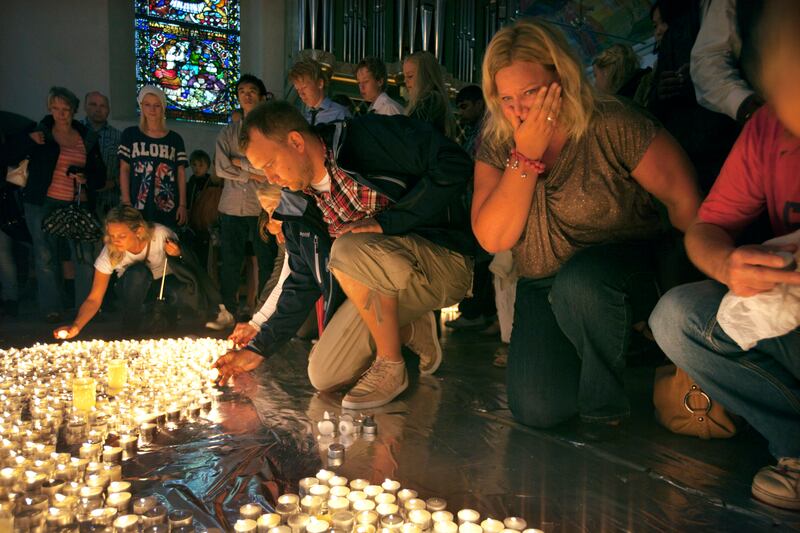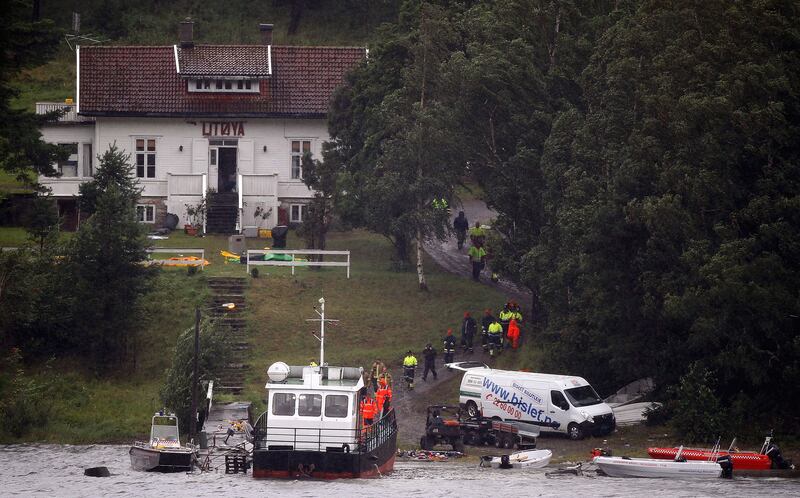Norway on Thursday marked 10 years since Anders Behring Breivik’s far-right massacre with solemn ceremonies to remember the dead and a vow to resist the hatred that inspired the attack.
Church bells rang out across the country in honour of the 77 people murdered by Breivik on July 22, 2011 in an atrocity that shook the nation and the world.
In Oslo, where Breivik began his attack by setting off a bomb that killed eight people, mourners including Norway’s King Harald paid their respects at a cathedral service where 77 roses were arranged in the shape of a heart.
Emotional survivors read aloud the names of the victims in a televised broadcast to mark the anniversary.
The prime minister at the time, current Nato chief Jens Stoltenberg, warned listeners in a speech at the cathedral that extremism was still a danger.
“Ten years ago, we met hatred with love,” Mr Stoltenberg said. “But the hatred is still present.”
Current Prime Minister Erna Solberg said empathy and tolerance were essential in combating extremism.
“The most important preparedness, we have to build within each of us,” she said. “We must not let hate stand unopposed.”
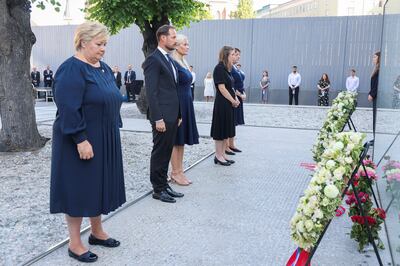
On the island of Utoya, where Breivik shot dead 69 people at a Labour Party youth camp, a minute's silence was held at a separate memorial event.
Norway's Crown Prince Haakon told mourners that nobody could comprehend the ordeal that the teenagers went through on the island.
"None of us can truly understand how frightened those who were here must have felt," he said. "All we can do is to listen and try to grasp the pain that still resides in everyone who lived through the attack."
Disguised as a police officer, Breivik took a ferry to the island where he hunted down distraught young people and murdered them in a 72-minute shooting rampage.
Some people who heard the gunfire rushed from a nearby campsite to help, only for Breivik to fire on them as well.
Many survivors face psychological trauma from the events of that day, suffering from anxiety, depression and sleeping problems, and worry about the continuing threat of extremism.
“The deadly racism and right-wing extremism are still alive and well in our midst,” said survivor Astrid Eide Hoem.
“They live on the internet, they live around the dinner table, they live in people that many listen to.”
Breivik was in 2012 sentenced to 21 years in prison but it can be extended indefinitely and he is likely to spend the rest of his life behind bars.
Norway’s intelligence service said this week that his far-right beliefs were “still a driving force for right-wing extremists” at home and abroad.
Breivik’s hate-filled manifesto inspired the New Zealand terrorist Brenton Tarrant and the Norway massacre is often glorified by online extremists.
This week, vandals scrawled 'Breivik was right' on a memorial for a man who was killed by neo-Nazis in 2001.
Some of the bereaved relatives from the 2011 attack said that time had not healed all the wounds from Breivik’s massacre.
Lisbeth Kristine Roeyneland, whose daughter Synne was killed, asked what the victims would think of those they left behind.
“I think they would be sad to know that there still are survivors and bereaved with great needs,” she said.
“I also think they would be proud of us. Proud of how we reacted in the days after the terrorist attack and how our state under the rule of law firmly stood its ground in the face of brutality.”
